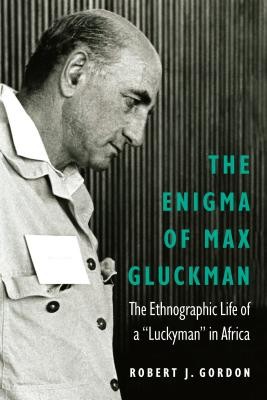
- We will send in 10–14 business days.
- Author: Robert J Gordon
- Publisher: University of Nebraska Press
- ISBN-10: 0803290837
- ISBN-13: 9780803290839
- Format: 15.2 x 22.9 x 3.3 cm, kieti viršeliai
- Language: English
- SAVE -10% with code: EXTRA
Reviews
Description
The Enigma of Max Gluckman examines one of the most influential British anthropologists of the twentieth century. South African-born Max Gluckman was the founder of what became known as the Manchester School of social anthropology, a key figure in the anthropology of anticolonialism and conflict theory in southern Africa, and one of the most prolific structuralist and Marxist anthropologists of his generation. From his position at Oxford University as graduate student and lecturer to his career at Manchester, Gluckman was known to be generous and engaged with his closest colleagues but brutish and hostile in his denunciations of their work if it did not contribute to the social justice and activist vision he held for the discipline.
Conventional histories of anthropology have treated Gluckman as an outlier from mainstream British social anthropology based on his career at the University of Manchester and his gruff manner. He was certainly not the colonial gentleman typical of his British colleagues in the field. Gluckman was deeply engaged with field research in southern Africa on the Zulus, in Barotseland with the Lozi, and also in connection with his directorship of the Rhodes-Livingstone Institute from 1941 to 1947, which obscured his growing critique of anthropology's methods and ties to Western colonialism and racial oppression in the subcontinent.
Robert J. Gordon's biography skillfully reexamines the colorful life of Max Gluckman and restores his career in the British anthropological tradition.
EXTRA 10 % discount with code: EXTRA
The promotion ends in 22d.20:02:40
The discount code is valid when purchasing from 10 €. Discounts do not stack.
- Author: Robert J Gordon
- Publisher: University of Nebraska Press
- ISBN-10: 0803290837
- ISBN-13: 9780803290839
- Format: 15.2 x 22.9 x 3.3 cm, kieti viršeliai
- Language: English English
The Enigma of Max Gluckman examines one of the most influential British anthropologists of the twentieth century. South African-born Max Gluckman was the founder of what became known as the Manchester School of social anthropology, a key figure in the anthropology of anticolonialism and conflict theory in southern Africa, and one of the most prolific structuralist and Marxist anthropologists of his generation. From his position at Oxford University as graduate student and lecturer to his career at Manchester, Gluckman was known to be generous and engaged with his closest colleagues but brutish and hostile in his denunciations of their work if it did not contribute to the social justice and activist vision he held for the discipline.
Conventional histories of anthropology have treated Gluckman as an outlier from mainstream British social anthropology based on his career at the University of Manchester and his gruff manner. He was certainly not the colonial gentleman typical of his British colleagues in the field. Gluckman was deeply engaged with field research in southern Africa on the Zulus, in Barotseland with the Lozi, and also in connection with his directorship of the Rhodes-Livingstone Institute from 1941 to 1947, which obscured his growing critique of anthropology's methods and ties to Western colonialism and racial oppression in the subcontinent.
Robert J. Gordon's biography skillfully reexamines the colorful life of Max Gluckman and restores his career in the British anthropological tradition.


Reviews